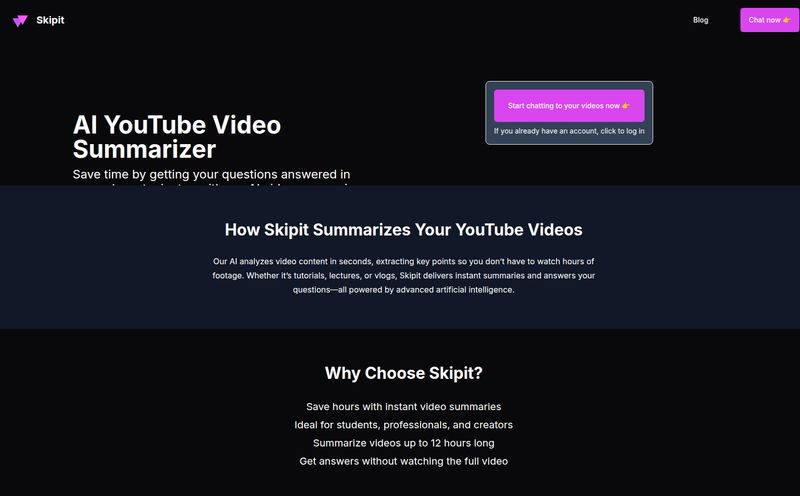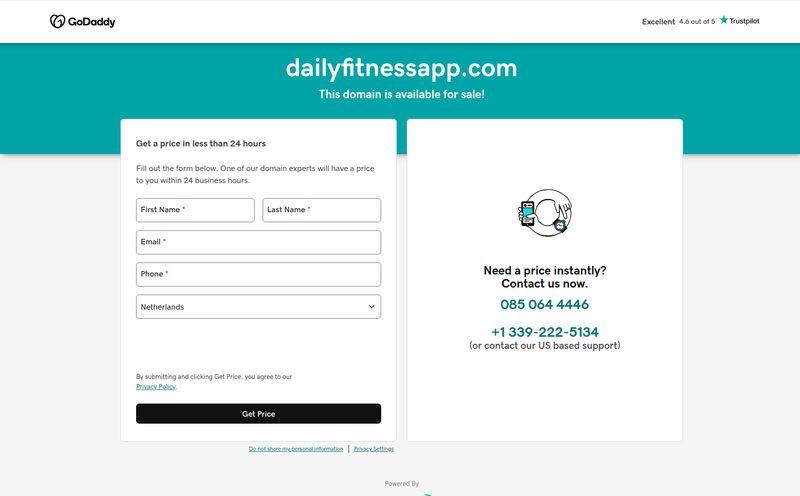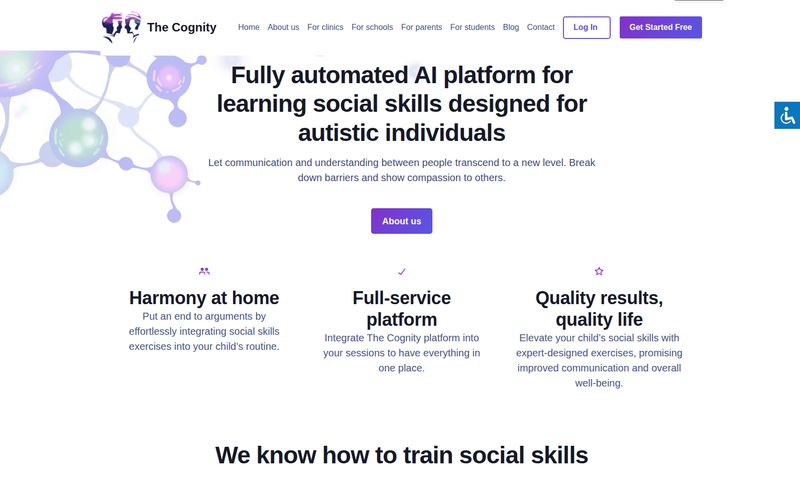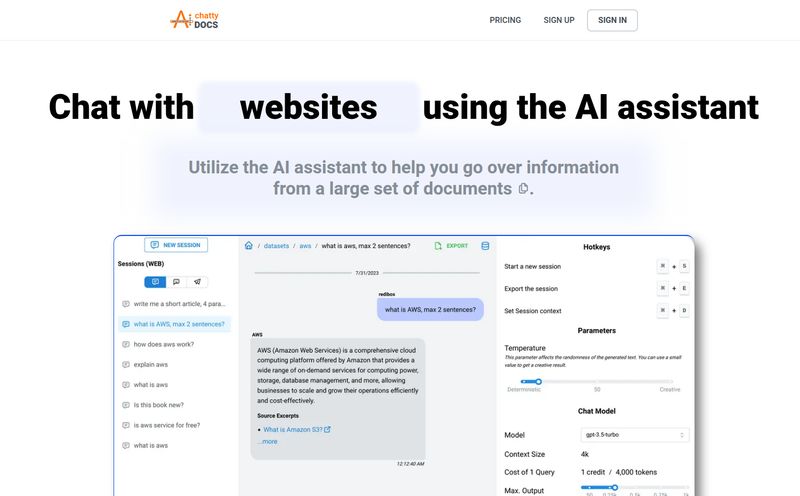The AI boom is… well, it’s booming. We've all played with ChatGPT, marveled at what GPT-4o can do, and maybe even tried to get it to diagnose that weird rash we had last summer (don't lie, you know you did). And for a lot of things, these generalist AI models are incredible. They're like a Swiss Army knife for information. But here's the rub: when you need to perform surgery, you don't reach for a Swiss Army knife. You call a surgeon.
That's the exact feeling I get when I look at the current state of AI in highly specialized fields, especially healthcare. A general model can tell you what a fever is, but can it understand the subtle tremor in a patient's voice as they describe their symptoms over a telehealth call? Can it differentiate between a cough that’s just a cold and one that signals something more sinister? Probably not with the accuracy of a trained professional.
And that’s where tools like Corti come swaggering onto the scene. I’ve been keeping an eye on them for a while, and they’re not just another company slapping an “AI” sticker on their product. They’re trying to build the specialized tools—the scalpels, not the pocket knives—for the future of medicine.
So What is Corti, Anyway?
In the simplest terms, Corti is an AI company that builds its models exclusively for healthcare. Forget asking it to write a poem about your cat or plan a trip to Italy. Corti's AI lives and breathes medical data. It's designed from the ground up to understand the complex, jargon-filled, and often emotionally charged conversations that happen between patients and providers.
Think of it as the difference between a general practitioner and a cardiologist. Your GP is fantastic for a wide range of issues, but when you have a specific heart problem, you want the expert who has spent their entire career focused on that one, intricate system. Corti aims to be that specialist for healthcare workflows. They provide enterprise-level AI that can be integrated into existing systems to help make patient care safer, faster, and just… smarter. It’s about creating streamable intelligence that works in real-time, right where it's needed most.
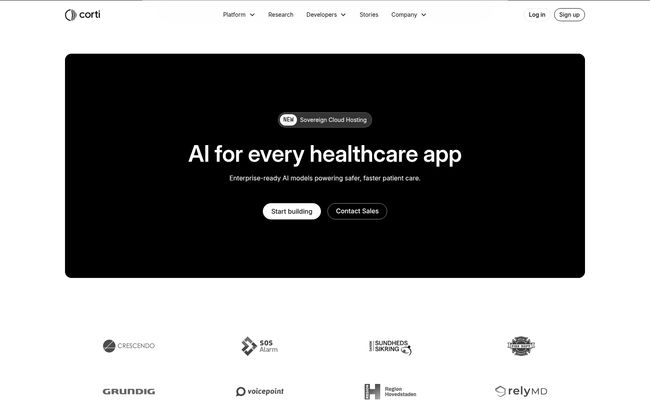
Visit Corti
The Big Problem with "One-Size-Fits-All" AI in Medicine
I saw a fascinating chart on Corti's website that really drove this point home. It compared their model to OpenAI's impressive GPT-4o on a couple of healthcare-specific tasks. And Corti came out ahead. Now, this isn't a knock on OpenAI—what they've built is revolutionary. But it highlights a critical point: context is everything.
A general AI might get tripped up by medical shorthand, misinterpret the nuance in a patient’s description of pain, or fail to connect seemingly unrelated symptoms. It learns from the entire internet, which includes both WebMD and some very, very questionable forums. This can lead to what the industry calls 'model rejection' or generating unhelpful suggestions. It’s a classic case of garbage in, garbage out.
Why a Specialist AI Is a Game-Changer
Corti’s approach is to train its AI on curated, relevant healthcare data. This means it's better at understanding the specific lingo, the pauses in a patient's speech, the background noises on an emergency call. This isn't just about transcribing words; it's about understanding intent and severity. When an AI can reliably assist a paramedic in identifying stroke symptoms from a few spoken phrases or help a telehealth nurse prioritize patients based on risk, it moves from a neat tech demo to a life-saving tool. This is the precision medicine that we've been promised for years, but applied to the workflow itself.
Exploring Corti's Core Offerings
So how do you actually use this specialized intelligence? Corti basically gives you two main paths, which I appreciate. It caters to both the DIY crowd and those who want something a bit more out-of-the-box.
The Corti API: Build Your Own Health-Tech Masterpiece
For the developers and health-tech companies out there, this is the main event. Corti provides API access to its foundation models. This is like being handed a set of highly advanced, medical-grade LEGOs. You can integrate Corti's intelligence directly into your own applications—be it a telehealth platform, an ambulance dispatch system, or an electronic health record (EHR) workflow. The goal is to let you power up your existing tech with a brain that’s already got its M.D. in medical conversation.
Now, I'll be honest, integrating an API like this isn't always a walk in the park. It'll likely require some technical chops. This isn’t a simple WordPress plugin. But for organizations looking to build a truly custom, AI-powered solution, the API is the way to go.
The Product Library: Plug-and-Play AI Solutions
What if you’re not looking to build something from scratch? Corti also offers a Product Library. This seems to be a collection of more ready-made solutions designed to be plugged into existing workflows with less heavy lifting. Think of it as pre-built LEGO sets. While the website is a little light on the specific products in this library, the idea is to provide instant scaling for common use cases. I imagine this is perfect for a clinic or hospital that wants to, say, improve its patient intake process without hiring a team of developers.
Who Is Corti Actually For?
Looking at their partners—companies like SOS Alarm in Sweden and telehealth provider RelyMD—it’s clear who Corti is targeting. This isn't a consumer product. It's built for:
- Emergency Services: To help dispatchers analyze calls and provide better pre-arrival instructions.
- Telehealth Providers: To triage patients, assist clinicians during consultations, and automate documentation.
- Hospitals and Clinics: To streamline administrative workflows, improve patient monitoring, and ensure quality control.
- Health-Tech Companies: Any developer building the next generation of medical software who needs a powerful, specialized AI engine.
Essentially, if you're a professional in the healthcare space dealing with high volumes of patient interactions, Corti wants to be your AI co-pilot.
Let's Talk Turkey: The Corti Pricing Mystery
Ah, the part every business owner and CTO wants to know. How much does it cost? Well, if you go looking for a pricing page on Corti's site, you might just find a polite 'page not found' error, as I did. There are no neat tiers, no monthly subscription fees listed in plain sight.
And you know what? That’s not surprising. This is standard practice for enterprise-grade, B2B software, especially in a regulated field like healthcare. Pricing is almost certainly custom and based on a whole host of factors: your organization's size, your specific use case, the volume of API calls, the level of support you need, etc. You won’t find a “Buy Now” button here; you’ll find a “Contact Sales” or “Request a Demo” button. It signals a high-touch sales process, where they work with you to build a package. So while it’s a bit of a mystery, it’s a deliberate one.
The Good, The Bad, and The AI
No tool is perfect, so let’s break it down. From my analysis, the upsides are pretty compelling. You’re getting an AI that is laser-focused on healthcare, which promises far better accuracy and understanding of medical nuance than any generalist model. The ability to integrate this via an API or use pre-built products offers flexibility. And ultimately, the potential to reduce costs, lighten the administrative load on burnt-out clinicians, and improve patient outcomes is the holy grail here. That's a powerful value proposition.
On the flip side, there are things to consider. Relying on any AI, no matter how good, requires careful human oversight. This isn't about replacing doctors; it's about augmenting them. And because the specifics of the AI models' limitations aren't publicly detailed, any organization would need to do its due diligence. Furthermore, as mentioned, the API route will require some technical expertise to get right. It's a powerful tool, but you need to know how to wield it.
Frequently Asked Questions about Corti AI
How is Corti different from general AI like ChatGPT?
The biggest difference is specialization. While ChatGPT is a general-purpose AI trained on the broad internet, Corti's models are trained exclusively on curated healthcare data. This makes them significantly better at understanding complex medical terminology, patient conversations, and clinical workflows.
Is Corti difficult to integrate?
It depends on the path you choose. Integrating the Corti API will require a team with technical expertise in software development and API implementation. However, Corti also offers a Product Library with more 'plug-and-play' solutions that are designed for easier adoption into existing systems.
What kind of healthcare organizations use Corti?
Corti is used by a range of organizations, from emergency services like SOS Alarm to telehealth platforms and hospital systems. It's designed for any professional healthcare setting that involves patient communication and clinical decision support.
Is Corti compliant with healthcare regulations like HIPAA?
While I'm not a compliance lawyer, their website has a dedicated "Trust and compliance" section and they work with major healthcare entities. It's virtually certain that they are designed to be compliant with regulations like HIPAA in the regions they operate. This is a non-negotiable for any vendor in this space.
How much does Corti cost?
Corti does not publish its pricing publicly. It operates on an enterprise sales model, which means pricing is customized based on your organization's needs, scale, and specific use case. You'll need to contact their sales team for a quote.
Final Thoughts: Is Corti the Right Prescription?
After digging into Corti, I'm genuinely optimistic. For years, we've seen tech companies try to force general-purpose solutions onto the square peg of healthcare. It rarely works well. Corti's specialist approach feels like the right one. They’re not trying to be everything to everyone; they're trying to be the absolute best at understanding one of the most complex and important forms of human communication.
Is it a silver bullet that will solve all of healthcare’s problems? Of course not. But it’s a powerful, thoughtfully designed tool that, in the right hands, could make a real difference. It could give clinicians more time to focus on their patients, catch critical symptoms earlier, and make our healthcare systems just a little bit more efficient. And in today's world, that's a prescription I think we can all get behind.
Reference and Sources
- The official Corti website: https://www.corti.ai/
- Corti on GitHub: https://github.com/corti-ai
